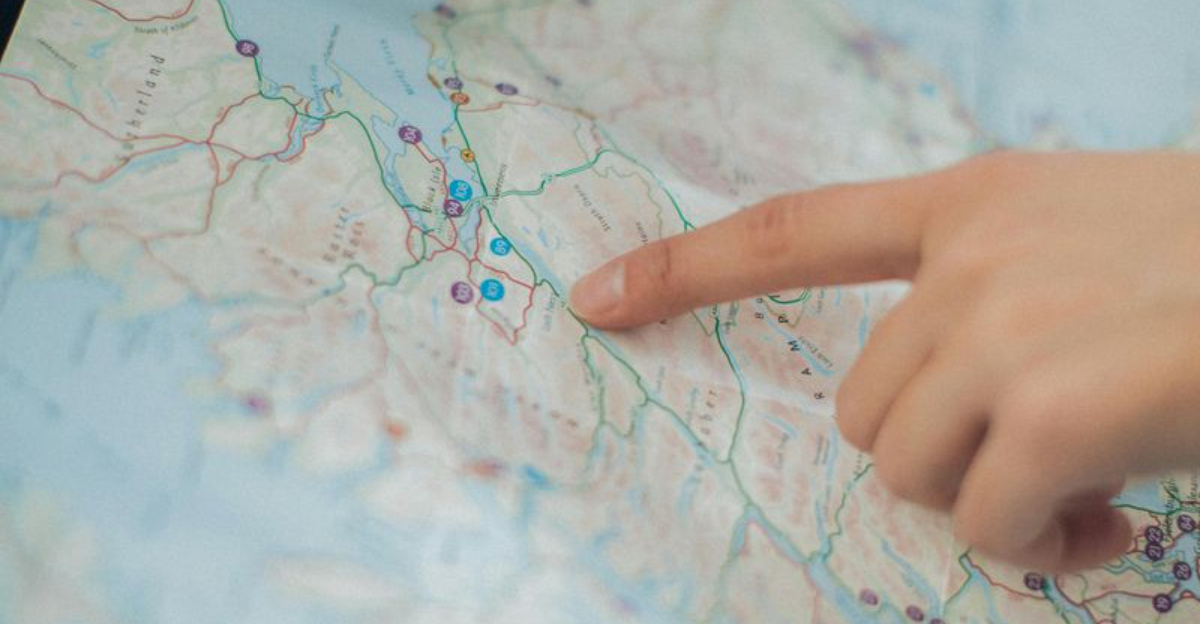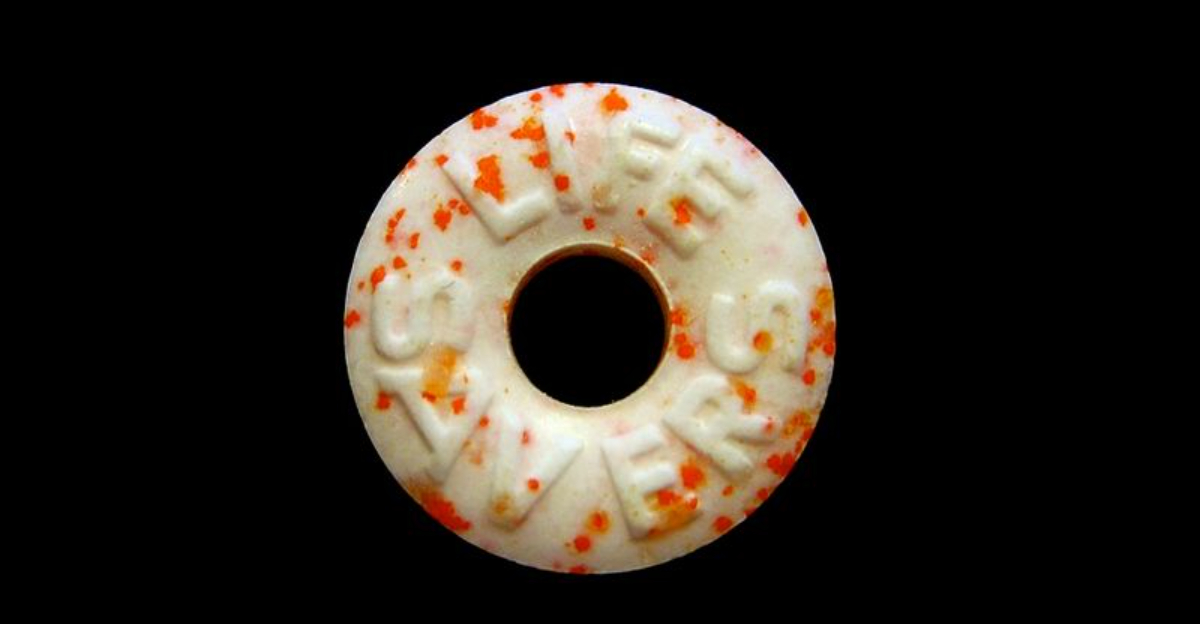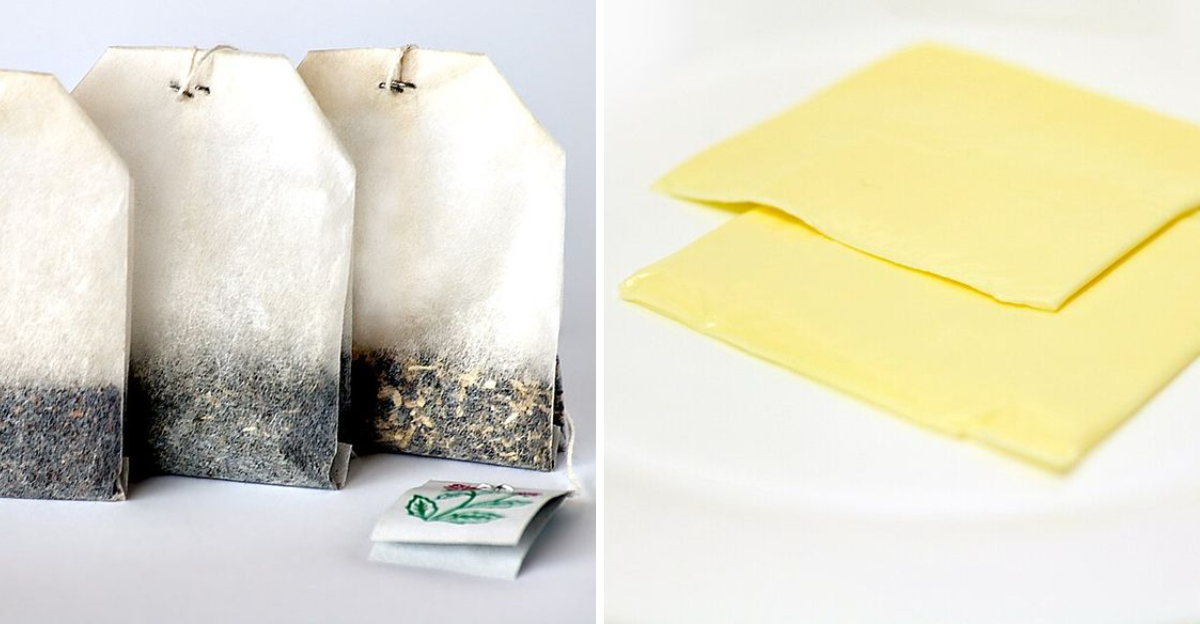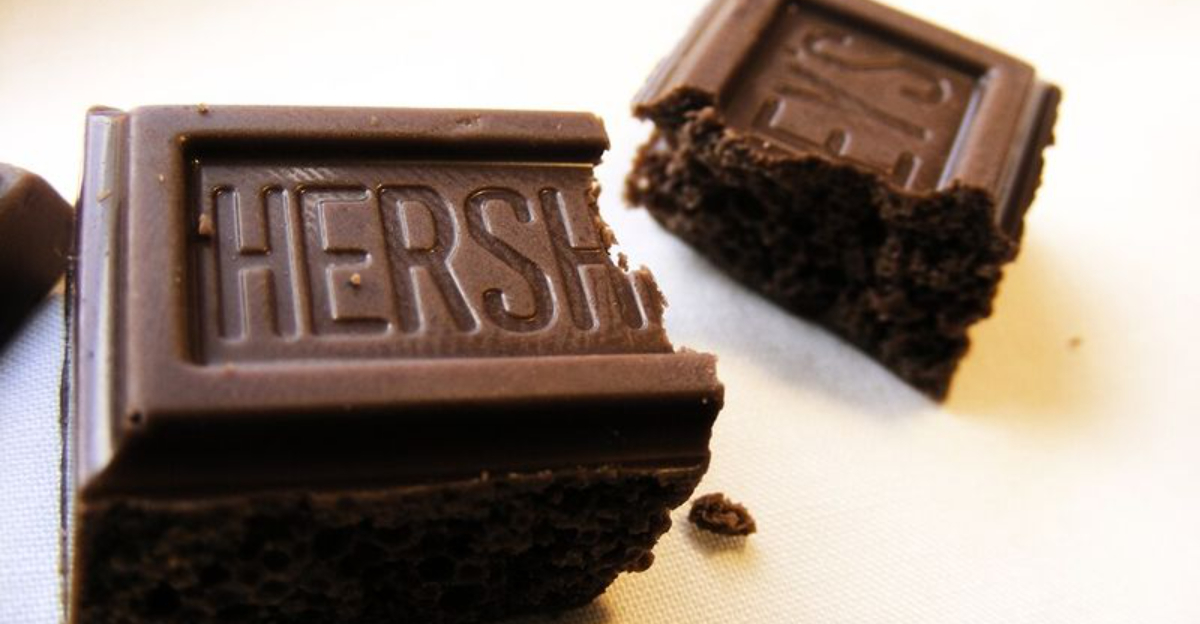Ice Cream Through The Ages: 13 Historical Facts Worth Knowing
Ice cream isn’t just a tasty treat you grab on a hot summer day.
This frozen dessert has traveled through thousands of years, crossing continents and cultures, evolving from simple snow mixed with fruit to the creamy scoops we love today. From ancient emperors to modern ice cream trucks, every era added its own delicious twist to the story.
Historical accounts of food origins may include traditional stories or disputed details passed through generations. Dates, recipes, and methods are presented based on widely accepted historical and culinary sources. This article is intended for general informational and educational purposes only and does not imply endorsement of any product, source, or external website.
1. Ancient Persia’s Icy Innovation
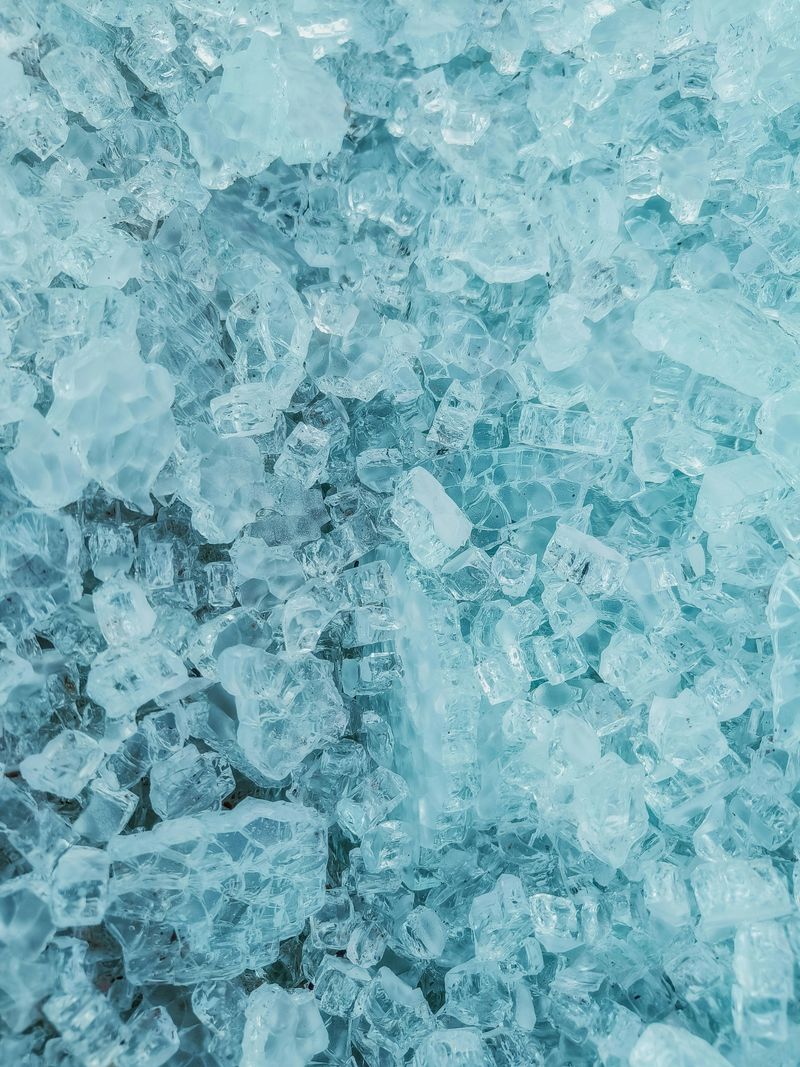
Around 500 BCE, people in Persia discovered something magical. Mountain snow mixed with sweet fruit syrups created a refreshing summer treat that beat the desert heat.
Imagine climbing high peaks just to gather snow for dessert! Persians valued this icy delicacy so much that they built special underground chambers called yakhchals to store ice year-round.
2. Roman Emperors And Their Frozen Luxuries
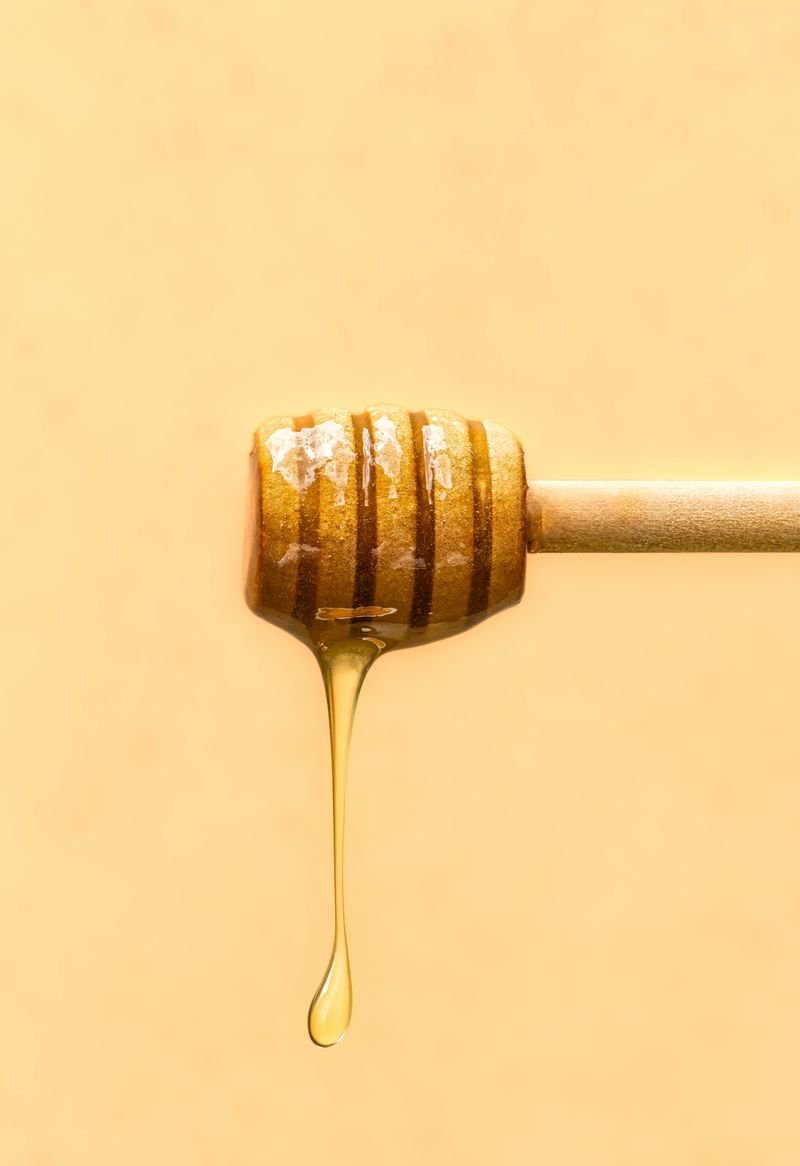
Roman rulers didn’t mess around when it came to dessert. They sent servants running up mountains to fetch fresh snow, then sweetened it with honey and fruit juices.
Emperor Nero supposedly loved these chilled concoctions so much he had relay teams of runners bring ice from the mountains. Talk about dedication to dessert!
3. Tang Dynasty China’s Frozen Milk Discovery
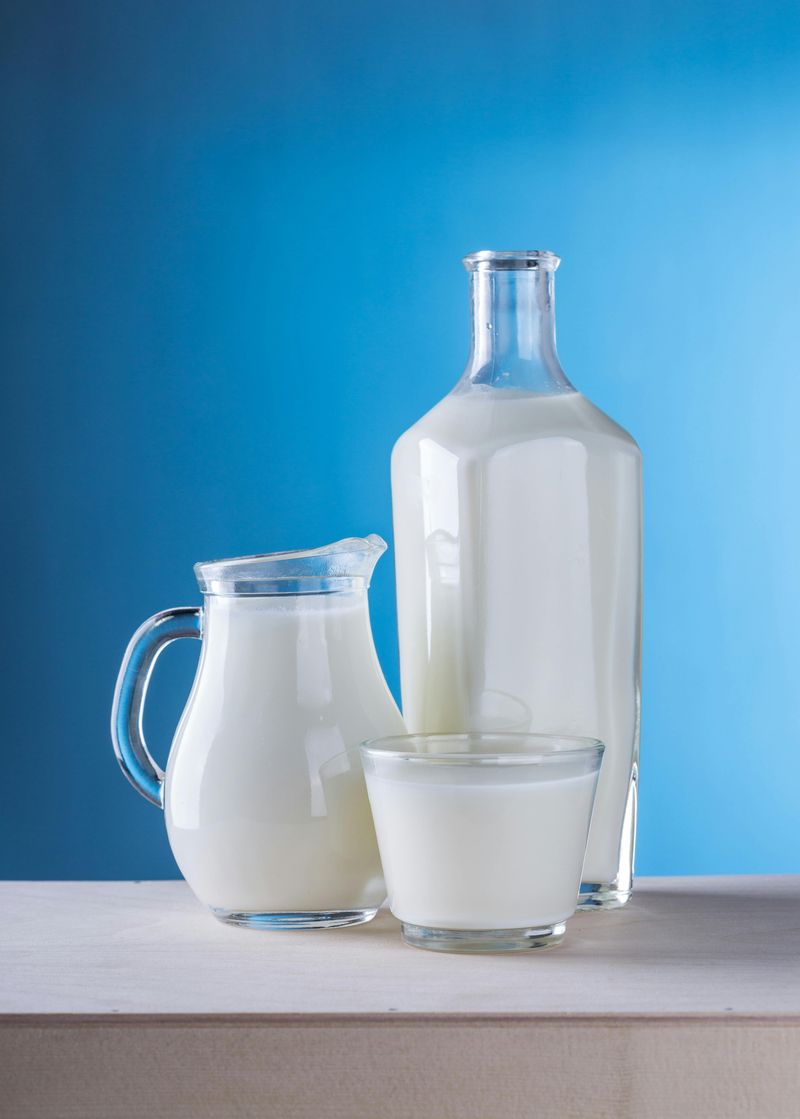
Chinese innovators during the Tang era figured out chemistry before it was cool (literally). By packing milk mixtures in metal containers surrounded by ice and salt, they lowered temperatures enough to freeze dairy.
This technique was revolutionary! Salt made ice colder, creating the first true frozen milk desserts centuries before anyone else caught on.
4. Medieval Arab Sweetened Ices
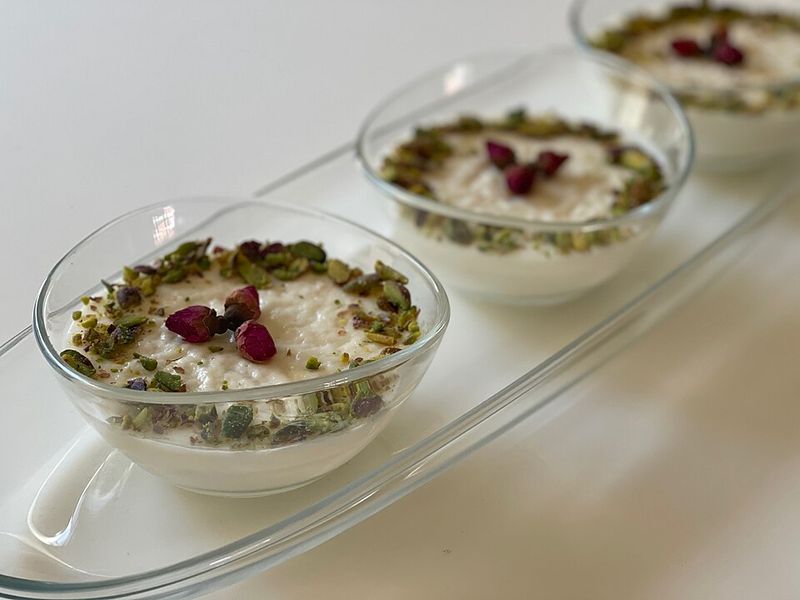
Arab cooks transformed frozen treats into art during medieval times. They added sugar, rosewater, and pistachios to create aromatic ices that tantalized every sense.
These weren’t just desserts – they were experiences! The perfume of roses mixed with crunchy nuts created flavors that spread along trade routes, influencing dessert-making across three continents.
5. Renaissance Italy Births Sorbetto
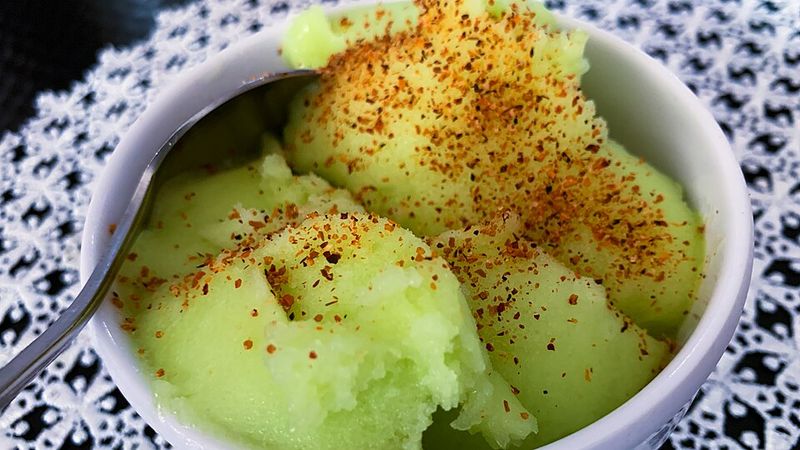
Italy’s Renaissance wasn’t just about art and science, it revolutionized frozen desserts too. Florentine cooks perfected sorbetto, a smooth fruit ice that became the blueprint for modern sorbet.
When Catherine de’ Medici married France’s king in 1533, she brought Italian chefs along. Soon, all of Europe craved these elegant frozen treats.
6. Lady Anne Fanshawe’s 1600s Recipe
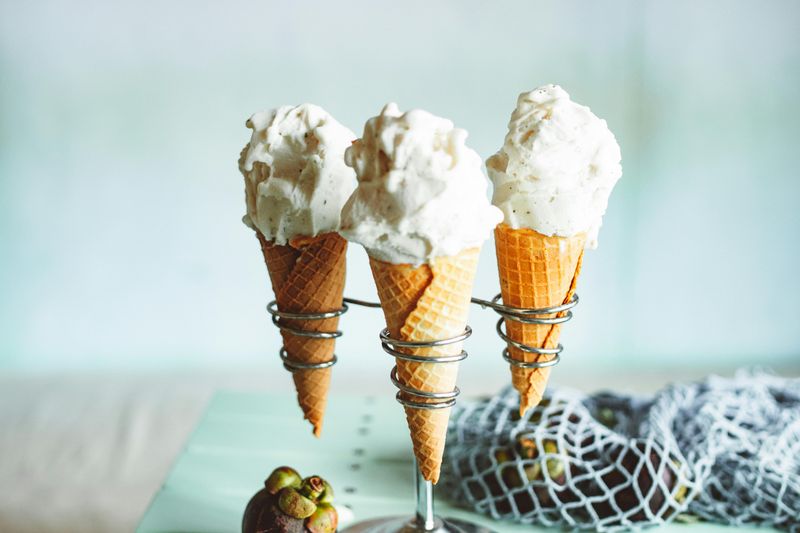
One of England’s earliest ice cream recipes appears in Lady Anne Fanshawe’s personal manuscript from the 1600s. Her handwritten instructions describe creating “icy cream” using cream, sugar, and flavorings.
Before printed cookbooks dominated kitchens, aristocratic women preserved culinary secrets in private journals. Lady Anne’s recipe proves ice cream had already captured British hearts.
7. Café Procope Serves Parisian Society
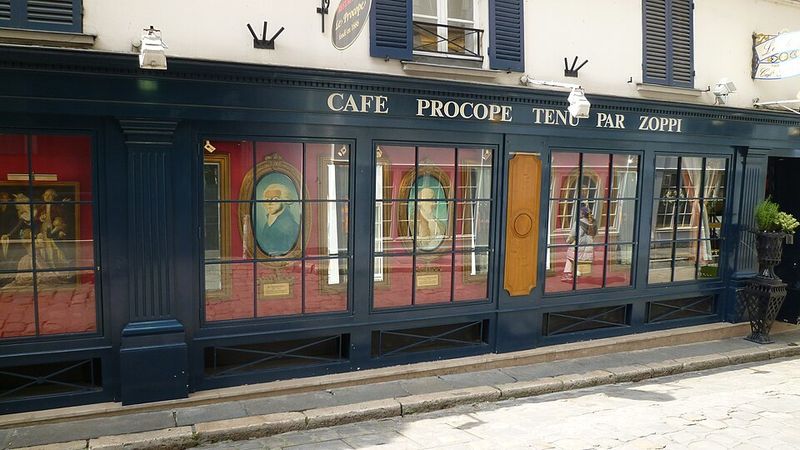
Paris’s Café Procope opened in 1686 and quickly became the place to see and be seen. Among coffee and conversation, fashionable Parisians discovered frozen desserts that became the talk of the city.
Writers, philosophers, and artists gathered here, debating ideas between bites of icy treats. Café Procope still operates today – that’s over 300 years of serving happiness!
8. Ice Cream Arrives In American Colonies
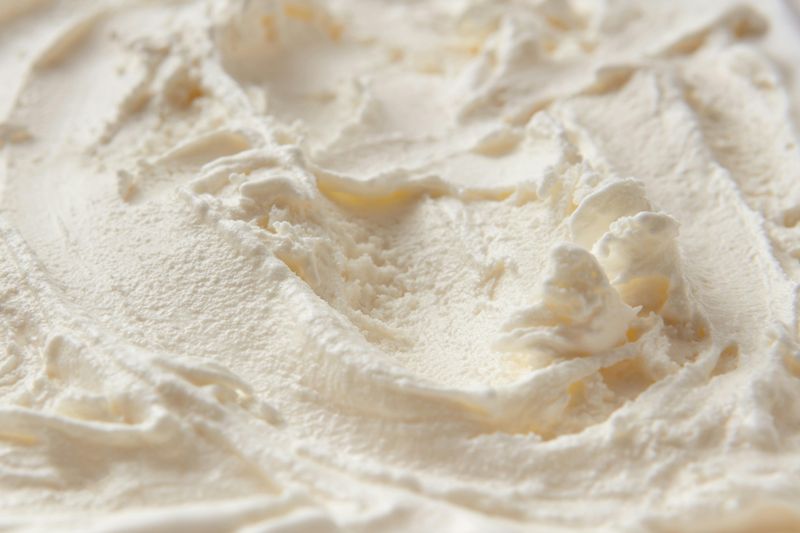
By the 1700s, ice cream had crossed the Atlantic Ocean to reach American shores. Colonial elites served it at fancy gatherings, and future presidents like George Washington and Thomas Jefferson became superfans.
Jefferson even brought back a French recipe and an ice cream machine from his time in Paris. Presidential ice cream obsession started early!
9. Nancy Johnson’s Hand-Cranked Revolution
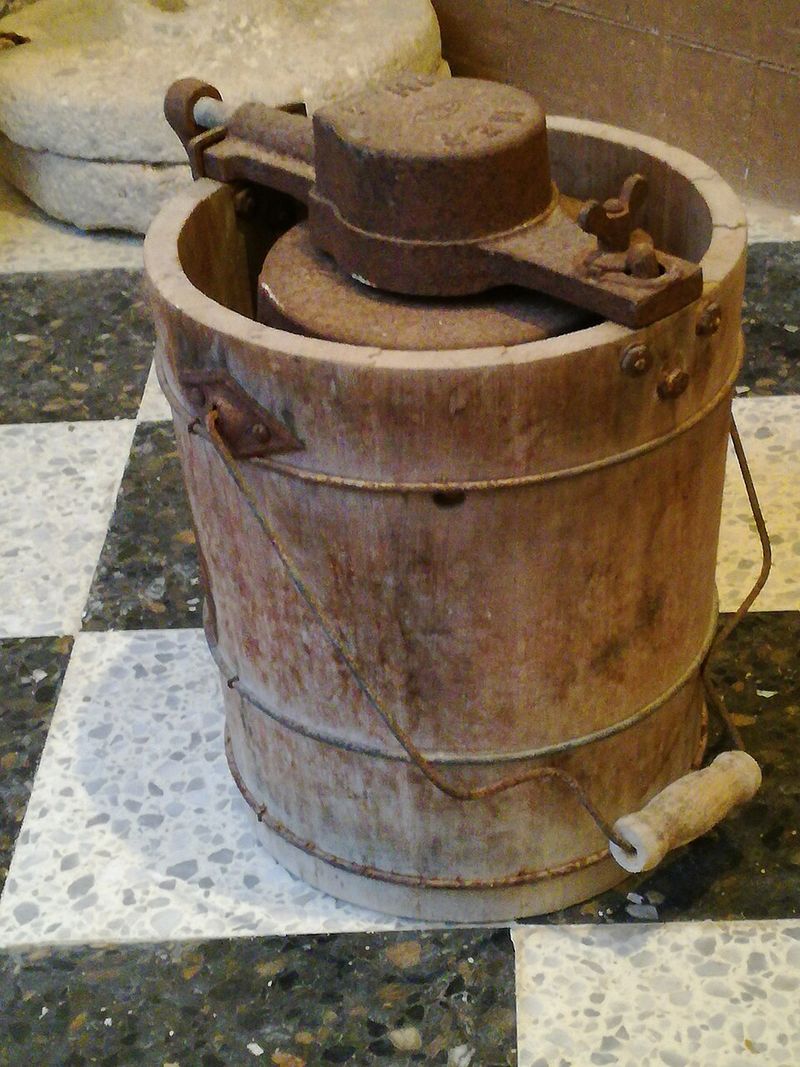
Before 1843, making ice cream meant endless stirring by hand – exhausting work that limited who could enjoy it. Then Nancy Johnson invented the hand-cranked ice cream freezer, and everything changed.
Her clever design used a rotating paddle inside an ice-packed bucket. Suddenly, families could churn smooth ice cream at home without hiring help or building muscles!
10. Mechanical Refrigeration Changes Everything
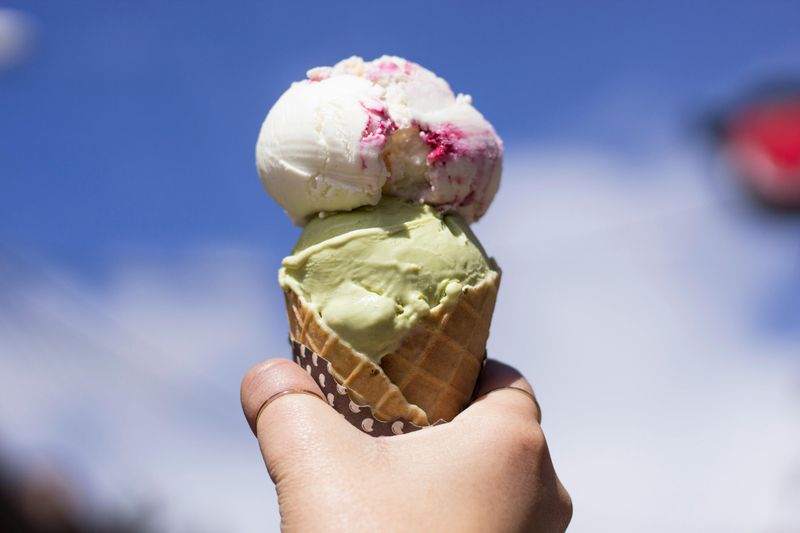
When mechanical refrigeration emerged in the late 1800s, ice cream transformed from luxury to everyday pleasure. Factories could produce massive quantities without depending on natural ice harvested from frozen lakes.
Commercial ice cream businesses exploded! What once required ice houses and seasonal limitations became available year-round, making ice cream accessible to working-class families everywhere.
11. Waffle Cones Steal The Show
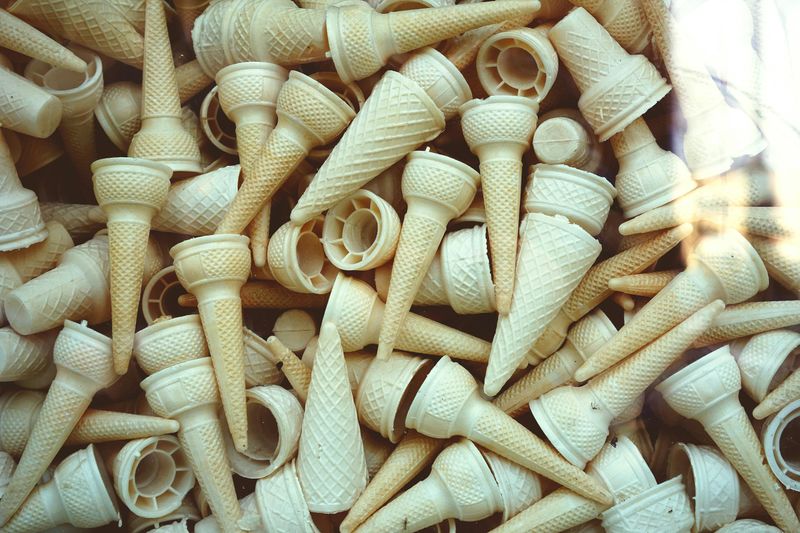
Though edible cones existed earlier, the 1904 St. Louis World’s Fair made them legendary. Stories claim an ice cream vendor ran out of dishes, and a nearby waffle maker rolled his product into cones.
Whether that tale is completely true or not, waffle cones became wildly popular afterward. Who wants boring bowls when you can eat the container?
12. Soft Serve Takes America By Storm
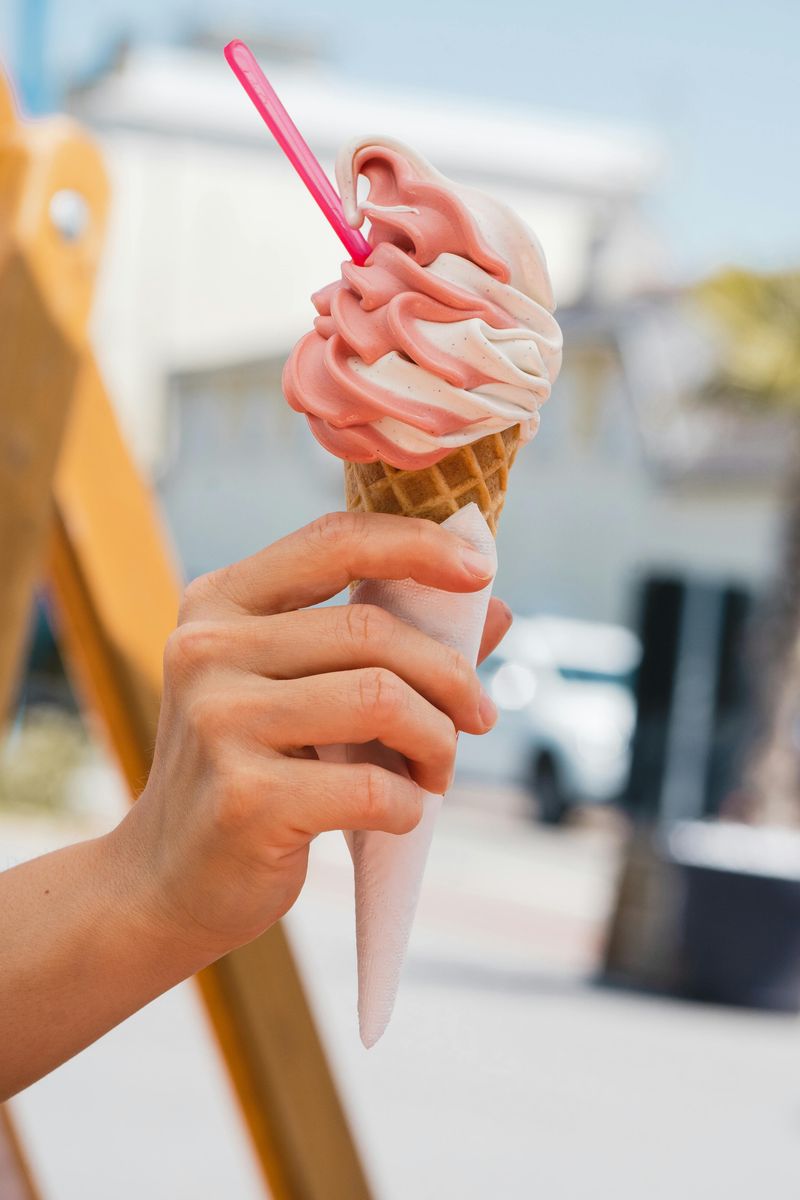
The 1930s introduced soft serve to America when vendors discovered that partially frozen ice cream straight from the machine tasted incredibly smooth. The texture was lighter and creamier than hard-packed scoops.
Ice cream trucks, roadside stands, and eventually major chains built empires on this innovation. That signature swirl became an icon of American summer.
13. Global Ice Cream Styles Today
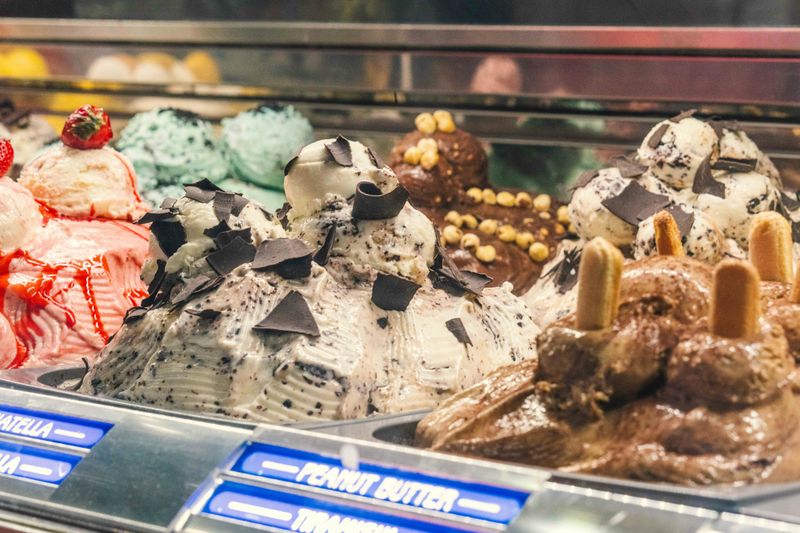
Modern ice cream lovers enjoy incredible diversity. Italian gelato uses less air and more milk for dense richness. Indian kulfi freezes slowly on sticks with cardamom and saffron. Japanese mochi wraps ice cream in chewy rice dough.
Every culture added its signature twist, proving frozen desserts speak a universal language of deliciousness!

